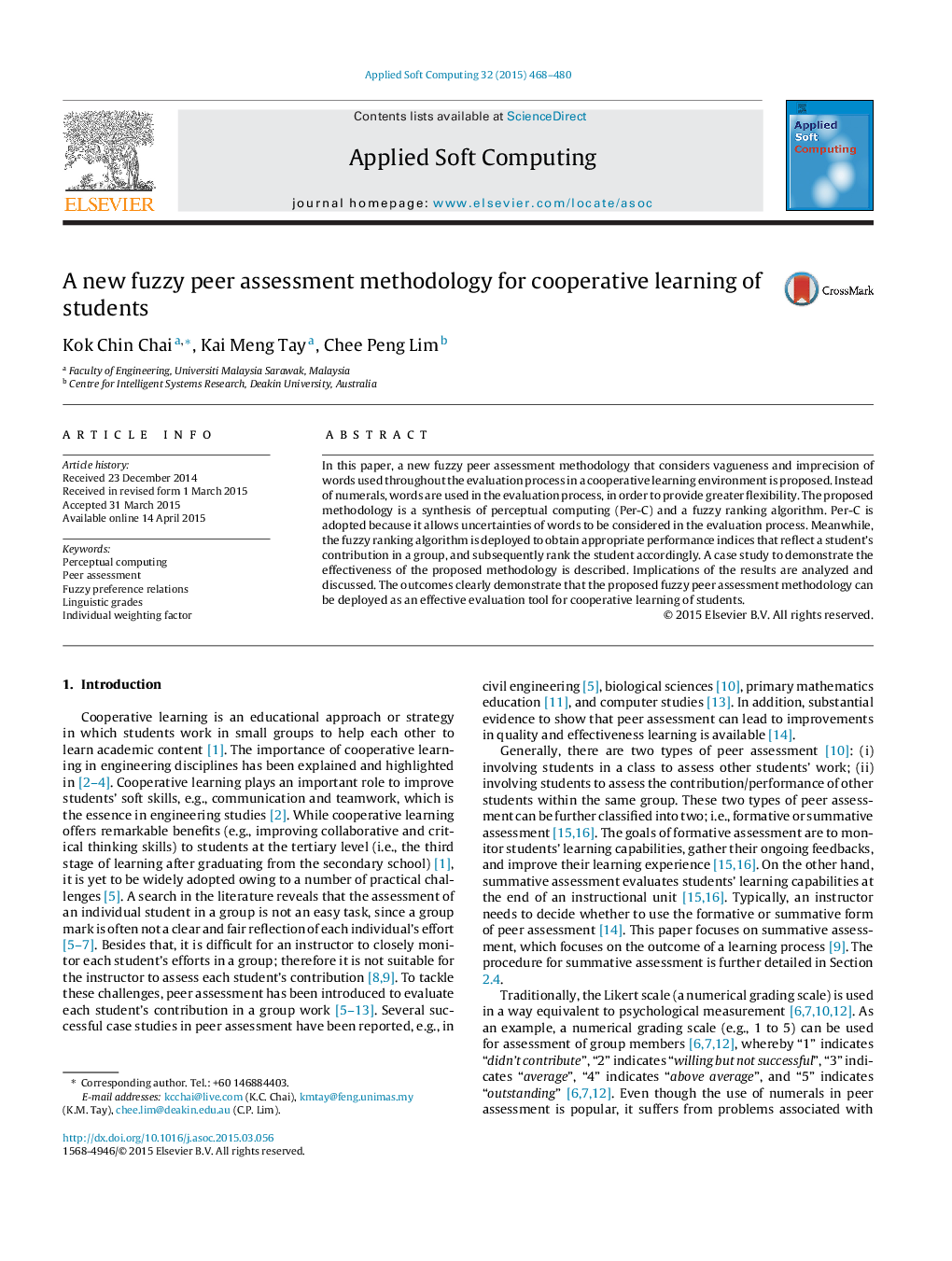| Article ID | Journal | Published Year | Pages | File Type |
|---|---|---|---|---|
| 495029 | Applied Soft Computing | 2015 | 13 Pages |
•A new fuzzy peer assessment methodology is proposed.•A synthesis of perceptual computing and a fuzzy ranking algorithm.•Providing both crisp scores and recommendations.•A case study in Universiti Malaysia Sarawak is reported.•An illustrative example is adopted to detect possible free riders.
In this paper, a new fuzzy peer assessment methodology that considers vagueness and imprecision of words used throughout the evaluation process in a cooperative learning environment is proposed. Instead of numerals, words are used in the evaluation process, in order to provide greater flexibility. The proposed methodology is a synthesis of perceptual computing (Per-C) and a fuzzy ranking algorithm. Per-C is adopted because it allows uncertainties of words to be considered in the evaluation process. Meanwhile, the fuzzy ranking algorithm is deployed to obtain appropriate performance indices that reflect a student's contribution in a group, and subsequently rank the student accordingly. A case study to demonstrate the effectiveness of the proposed methodology is described. Implications of the results are analyzed and discussed. The outcomes clearly demonstrate that the proposed fuzzy peer assessment methodology can be deployed as an effective evaluation tool for cooperative learning of students.
Graphical abstractThe proposed Fuzzy peer assessment methodology.Figure optionsDownload full-size imageDownload as PowerPoint slide
